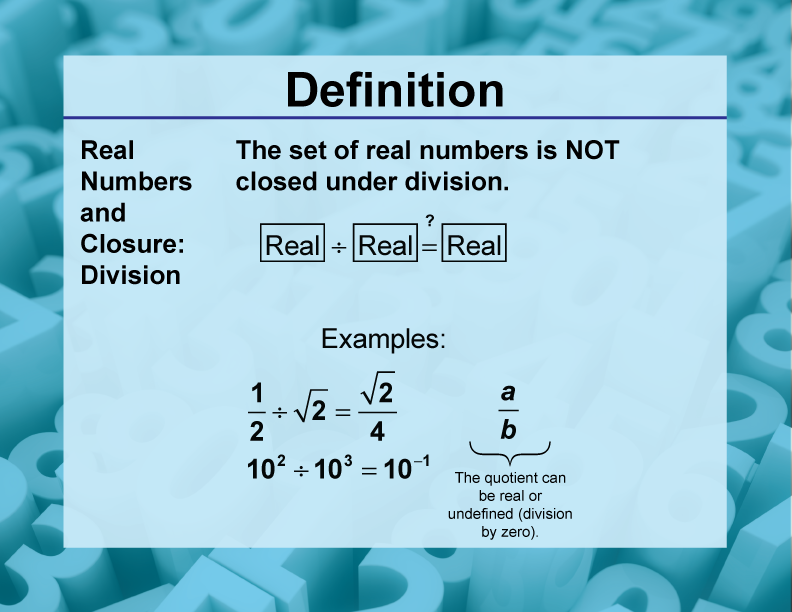
Display Title
Definition--Closure Property Topics--Real Numbers and Closure: Division
Display Title
Real Numbers and Closure: Division

Topic
Math Properties
Definition
The closure property for division of real numbers states that the quotient of any two real numbers (where the divisor is not zero) is always another real number.
Description
The closure property for division of real numbers is a crucial concept in mathematics that demonstrates the robustness of the real number system. This property ensures that when we divide one real number by another (non-zero) real number, the result is always another real number, keeping us within the same number system.
Understanding this property is essential for students as they advance in their mathematical studies. It provides a foundation for more complex operations and helps in solving real-world problems involving ratios and proportions, such as in scaling recipes, calculating unit prices, or in more advanced fields like physics and engineering.
Algebraically, we can express this property as: For any real numbers a and b (where b is not zero), a ÷ b = c, where c is also a real number. This representation helps students transition to more abstract mathematical thinking and prepares them for concepts in algebra and calculus.
Teacher's Script: "Let's divide two real numbers: 6.4 ÷ 2.0. We get: 6.4 ÷ 2.0 = 3.2. Notice how our result is still a real number? Now, let's try -9.6 ÷ 4.8: -9.6 ÷ 4.8 = -2.0. Again, we get a real number! Can you think of any situation where dividing one real number by another wouldn't give you a real number?"
For a complete collection of terms related to the Closure Property click on this link: Closure Property Collection.
| Common Core Standards | CCSS.MATH.CONTENT.HSN.RN.B.3, CCSS.MATH.CONTENT.HSN.CN.A.2 |
|---|---|
| Grade Range | 9 - 12 |
| Curriculum Nodes |
Algebra • The Language of Math • Numerical Expressions |
| Copyright Year | 2021 |
| Keywords | Closure Property |